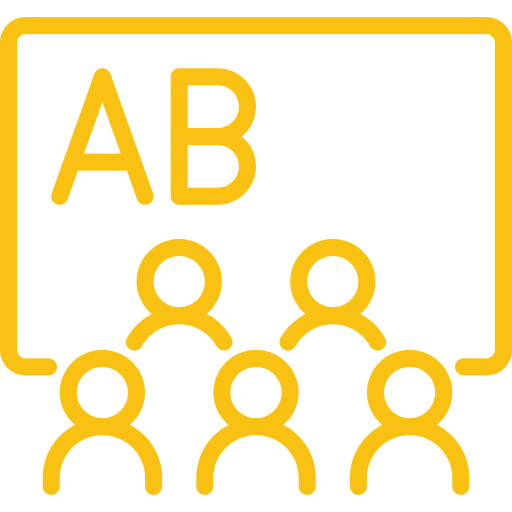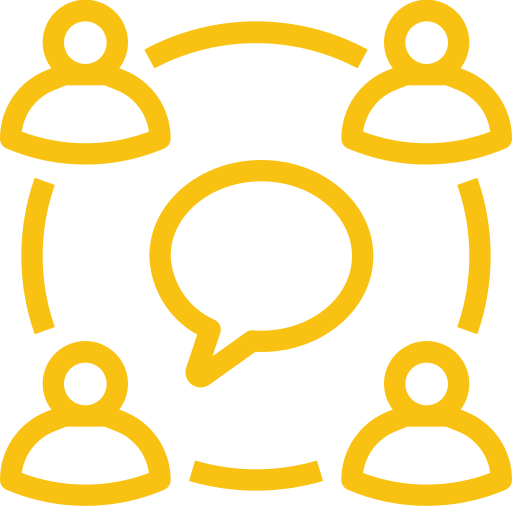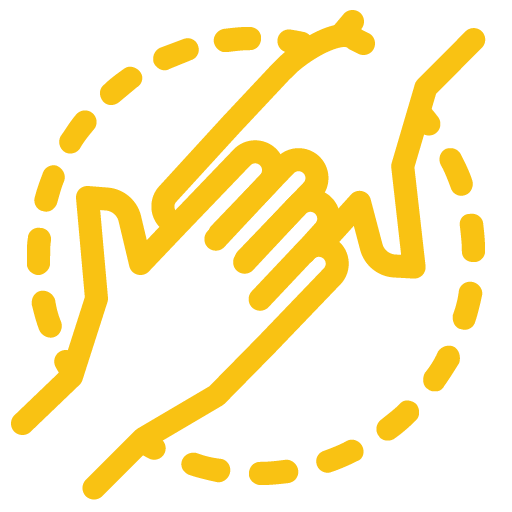Think of the last time you nailed a job interview or led a successful project team. Chances are, your soft skills played a starring role. Today’s workplace doesn’t just value what you know; it’s all about how well you play with others. That’s where teaching soft skills comes into play.
In this post we’ll explore why these non-technical talents are in high demand and how they can make or break career success. From the classroom to the boardroom, get ready for practical insights on fostering collaboration, adaptability, and problem-solving prowess that will set up students and employees alike for triumph.
You’ll learn not only why employers keep an eye out for these gems but also strategies to embed them into everyday learning experiences—preparing everyone to shine brighter than ever in any work setting.
Understanding Soft Skills and Their Importance in the Workplace
Gone are the days when a sharp suit and a firm handshake were enough to seal the deal. Today, it’s all about those elusive soft skills that can make or break your career success. You know, like being able to navigate office politics or rallying your work team around you like you’re starring in a Disney movie (Remember the Titans, Avatar, Free Guy, etc).
Think of it like this: you might need hard skills to get a job, but you won’t keep your job without soft skills. Some would even argue that it’s more like this: hard skills get you the interview, soft skills get you hired. However you look at it, you can’t have an organization succeed without soft skills.
Defining Soft Skills in a Modern Business Setting
In this high-speed internet era where hard skills get outdated faster than last year’s memes, soft skills have become the hot ticket items for long-term job security. These aren’t just fancy buzzwords; we’re talking real-deal abilities that allow professionals to thrive across industries—something that more and more people are looking for in their lives.
A blend of people skills, social grace, personal habits—you name it—is what sets apart one skilled worker from another. It’s no wonder hiring managers spend sleepless nights searching for candidates who don’t just talk tech but also walk-the-talk of emotional intelligence and critical thinking as emphasized by the U.S Department of Labor’s guide ‘Soft Skills to Pay the Bills‘.
Why Employers Prioritize Soft Skills
Employers aren’t simply looking for someone who knows their way around an Excel spreadsheet—they want folks who can glide through workplace problems while fostering employee retention rates. Teams need players whose problem-solving abilities are top notch because let’s face it: every day is not Sunday at work.
Better teamwork? Check. Adaptability? Like putty in their hands. Professionals agree these intangible nuggets form part of an essential skill set crucial for navigating workplace relationships and situations—and they’re willing to pay top dollar for them.
The stats speak volumes:
- According to Forbes, 78% of jobs posted globally featured soft skills.
- Candidates boasting stellar soft skills? They’re snatched up quick-style by savvy employers eager for better collaboration efforts within teams.
- Research from ZipRecruiter discusses how 42% of companies are finding ways to hire for soft skills.
- Toss adaptability into the mix? You’ve got yourself employees ready to roll with punches like they’ve been training with Rocky Balboa himself. (On a side note, you’ll never convince me that Rocky IV isn’t a great Christmas movie. Just saying).
- Add top-notch problem-solving chops? Suddenly everyday hiccups turn into opportunities rather than roadblocks—all thanks to personnel armed with out-of-box thinking endorsed by organizations such as the U.S Department of Labor.
Funny thing is,
These changes are all about enhancing the day-to-day experience at work, beyond just the confines of a cubicle. It’s crucial to foster an environment where productivity and comfort go hand in hand for everyone. To prepare students for a future where soft skills are more valuable, we need to teach students things that aren’t on “the test,” like public speaking, time management, and critical thinking, to name a few.
Key Takeaway:
Soft skills are the key to career success, with adaptability and communication outshining hard skills. Employers crave these gems for seamless teamwork and problem-solving that turns hiccups into opportunities.
Strategies for Teaching Soft Skills in Education
We all know that soft skills are the secret sauce to nailing a job interview or charming your way through customer service. But when it comes to teaching these golden nuggets of the work environment, we need strategies as smart and flexible as the skills themselves.
Integrating Soft Skills into Educational Curricula
Gone are the days when learning was just about memorizing facts from a dusty textbook. In today’s classrooms, teachers sprinkle some magic by weaving soft skills training right into their curricula. Think public speaking during history presentations—suddenly, students learn how Abe Lincoln’s charisma can help them captivate an audience faster than you can say “Four score and seven years ago.” By slipping in lessons on teamwork or problem-solving alongside algebra equations, schools arm students with more than knowledge; they give them tools for life.
Sure, mastering specific job requirements is great but having people skills? That’s like adding extra cheese on your pizza—it makes everything better (a little advice, just like grocery shopping, don’t write blog posts when you’re hungry). And mentors provide that crucial ingredient by offering feedback that helps young minds develop not just academically but socially too. Now imagine each class becomes a mini laboratory where future professionals agree: emotional intelligence is just as critical as cracking codes or dissecting frogs.
Key Takeaway:
Mixing soft skills into curricula turns classrooms into life-prep labs, where lessons in charisma and teamwork make students ready for more than just exams.
The Role of Active Learning in Acquiring Soft Skills
Ever tried to learn how to ride a bike by just reading about it? It’s kind of like that with soft skills. You’ve got to roll up your sleeves and dive right into the action. That’s where active learning comes in—it’s all about getting hands-on experience, whether you’re practicing your public speaking or honing those listening skills.
The good news, you don’t have to rewrite the curriculum. Just throw in a few tweaks to your lessons to provide opportunities for some skills practice.
Defining Soft Skills in a Modern Business Setting
Soft skills are like the secret sauce that can turn an okay dish into a culinary masterpiece—they’re what make you shine in any work environment. They include people skills, emotional intelligence, and even that uncanny ability to stay cool as cucumber during tight deadlines—stress management.
To help you better understand what we’re talking about, let’s list soft skills that are often desired:
– Professionalism
– Critical Thinking
– Time management
– Punctuality
– Organization
– Teamwork
– Public speaking
– Conflict management
– Self-awareness
– Empathy
Just to name a few.
Why Employers Prioritize Soft Skills
You ever notice how everyone wants someone who “plays well with others”? That’s because companies have caught onto something important: employees who excel at soft skill areas tend to juggle workplace problems better than their counterparts—a real plus when you’re trying to avoid office drama or customer service nightmares. So it makes sense why hiring managers give candidates with top-notch communication and problem-solving abilities more than just a passing glance.
This isn’t just me yapping away; employers genuinely believe these attributes lead directly toward job success—after all, we’ve seen teams crumble without them. Think of any team you’ve been a part of and I’ll bet the success is related to these skills. It’s hard to keep a team together that can’t stand each other.
Key Takeaway:
Active learning is key to mastering soft skills, just like hands-on practice beats reading a manual when learning to ride a bike.
Examples of Essential Soft Skills for Career Advancement
Hard skills without soft skills is both messy and impractical. In the bustling corridors of modern workplaces, where emotional intelligence dances with time management, career ladders are climbed using more than just technical know-how.
Communication Skills: The Heartbeat of Business Success
Imagine you’re an orchestra conductor; your baton is your ability to articulate thoughts and inspire action—a symphony only possible through robust communication skills curriculum. This isn’t about talking someone’s ear off at the water cooler but being able to stitch together diverse threads into a tapestry everyone wants a piece of.
Tossing emails like hot potatoes gets nobody anywhere fast. We’re looking at professionals who not only speak but listen—the kind that turns monologues into dialogues and connects dots across work teams with finesse.
For more information, check out this compilation by Penn State Extension, they do a great job of outlining communication skills to help workers and students succeed.
Critical Thinking: Navigating Through Business Mazes
In any business setting, problems pop up like whack-a-moles. Critical thinking is about wielding that mallet wisely—not every mole needs hitting. It’s analyzing situations from multiple angles before plotting the best course through intricate challenges because let’s face it – straightforward paths in any business are as getting hit by lightning, twice, in the same day.
Critical thinking is gaining momentum in the classroom as well, students need to learn to handle difficult situations without shutting down. It’s why I don’t usually give directions that include every step along the path. I need them to work together as a support team, along the way helping develop the perseverance and fortitude they’ll need in the world.
Time Management: Juggling Tasks Like a Circus Pro
Your desk might resemble Times Square on New Year’s Eve—with tasks dropping left and right demanding attention louder than party horns. Enter time management—the artful juggle letting you keep all balls in air while mapping out deadlines quicker than Google Maps during rush hour traffic jams.
We all know people who are late to everything they do. Friends, family, coworkers, we experience high numbers of people in all of these areas who we never show up on time.
The savvy employee has mastered this skill well enough not just to meet goals but also carve out precious minutes for brainstorming sessions—because innovation doesn’t happen in vacuum-packed schedules.
If you’re looking to cover time management in your soft skills teaching, here’s a great article from Edutopia to help with some ideas to incorporate it into your lessons.
The Artistry Behind Emotional Intelligence:
If work environments were ecosystems (and aren’t they just?), then emotional intelligence would be our biodiversity – crucial for healthy growth. You’ve probably worked with, and taught, plenty of people who can’t control their emotions. There’s a good chance you’ve worked for them, and it’s probably felt like pulling your own teeth out. There are a few basic components to emotional intelligence, as outlined here by Mental Health America.
When you actually demonstrate active listening, people feel valued and understood. And what happens when people feel understood? They commit harder—and they dive deeper into their work, fostering a culture of trust and collaboration. This dedication can lead to impressive results across the board.
Key Takeaway:
Mix hard skills with soft ones to climb career ladders. Strong communication makes you the maestro of business, while critical thinking lets you navigate complex issues. Time management turns chaos into order, and emotional intelligence? It’s your ticket to becoming the life of every work party.
FAQs in Relation to Teaching Soft Skills
What is the best way to teach soft skills?
Dive into real-world scenarios and role-play exercises. They spark growth in communication, teamwork, and adaptability.
What are the 7 essential soft skills?
The big seven: communication, teamwork, adaptability, problem solving, critical thinking, emotional intelligence, and work ethic.
What are soft skills in teaching?
In teaching contexts, they’re about sparking curiosity and empathy while guiding collaboration among learners effectively.
Is it hard to teach someone soft skills?
Tough but doable. It’s all about creating a safe space for practice coupled with honest feedback loops.
Conclusion
Mastering the art of teaching soft skills can unlock doors. It lets students and employees tap into their full potential, from public speaking to problem-solving.
Nail down this craft, and you’ll watch people transform. They become excellent communicators with a knack for navigating complex work settings.
Keep it real; focus on practice makes perfect. Embrace active learning, let experiences be your guide, and always encourage a positive attitude.
Remember: what we learn with pleasure we never forget. Help folks develop those invaluable people skills today; they’ll thank you tomorrow when they meet goals others only dream about.
Tie it all together—balance hard knowledge with soft finesse—and there’s no stopping how far they’ll go in any modern workplace or life itself.
Keep Learning
If you are looking to learn more, consider taking one of our graduate classes here at MTI. We offer the most affordable graduate classes on the market, developed by real teachers.
Unlike other companies, we have zero hidden costs, and we provide the syllabus before you sign up. Some surprises are good, but they shouldn’t involve your money or time.
And if you’re interested in teaching with us, feel free to reach out via any of our social media links, or send an email to [email protected] for more details.





















